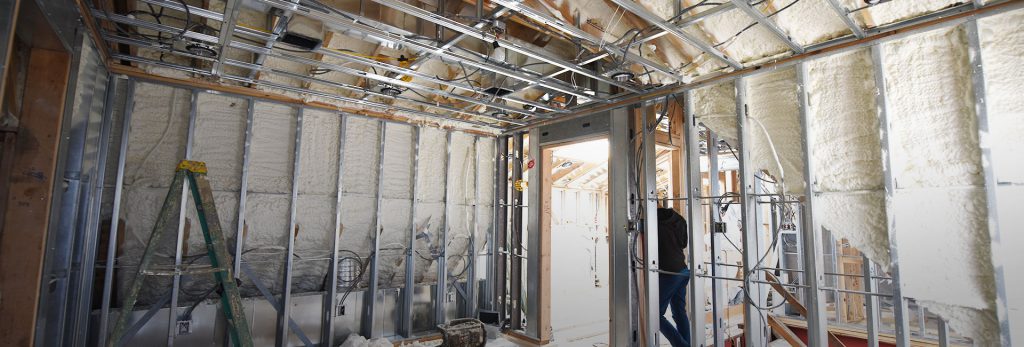
Unwanted noise can quickly turn your living or working space into a stressful environment. Whether it’s loud neighbors, street traffic, or sound transferring between rooms, finding the right solution matters — especially in places like Astoria, NY, where urban noise is part of daily life. That’s where soundproofing becomes a valuable investment.
In this guide, we’ll walk you through how to effectively soundproof a room, from understanding how sound moves to choosing the best materials for long-term peace and quiet.
Understanding How Sound Travels
Before diving into solutions, it helps to know how sound behaves. Sound travels through air (airborne noise) and solid materials (structure-borne noise). Examples include:
-
Airborne sound—voices, music, traffic
-
Structure-borne sound—footsteps, banging doors, vibrations from machines
Effective soundproofing targets both types by blocking, absorbing, or isolating the vibrations.
Soundproofing Methods That Work
To create a quieter environment, you can apply one or more of the following techniques:
1. Add Mass to Walls and Ceilings
Heavy materials like mass-loaded vinyl (MLV), drywall layers, or acoustic panels help reduce sound transmission.
2. Seal Gaps and Cracks
Sound can pass through the smallest openings. Use acoustic caulk to seal baseboards, outlets, vents, and around windows and doors.
3. Use Sound-Absorbing Materials
Install materials like acoustic foam, fabric panels, or rugs and curtains to absorb echo and reduce reflection within a room.
4. Install Door Sweeps and Weatherstripping
Doors are often a major source of sound leaks. Adding sweeps, seals, or even solid-core doors can significantly reduce noise.
5. Decouple Walls or Ceilings
For advanced soundproofing, building double walls or using resilient channels helps prevent sound vibrations from passing through.
Popular Applications for Soundproofing
Whether you’re soundproofing a home office or a music studio, the goal is the same: reduce unwanted sound while preserving comfort.
-
Bedrooms – Block out traffic and neighbor noise for better sleep.
-
Home offices – Reduce distractions and improve productivity.
-
Apartments – Cut down shared-wall noise between units.
-
Studios and media rooms – Control sound for better recording or listening experiences.
If you live in Astoria, NY, many buildings have thin walls or outdated construction, making soundproofing upgrades even more valuable.
Why Professional Soundproofing Services Matter
While DIY soundproofing can help reduce some noise, professional services offer long-term, high-performance solutions. Professionals understand building structures, sound movement, and the right combination of materials for each room.
One trusted provider, AAA Spray Foam Insulation, delivers expert soundproofing with materials that also improve energy efficiency. This combination makes their approach practical, effective, and sustainable — ideal for homeowners and commercial clients alike.
Final Thoughts
Effective soundproofing isn’t just for studios or high-end homes. In 2025, it’s a practical solution for anyone looking to create a peaceful space in a noisy environment — especially in areas like Astoria, NY where external and internal noise are hard to avoid.
By understanding how sound moves and investing in the right materials and techniques, you can drastically improve comfort, privacy, and overall quality of life.
Frequently Asked Questions
1. What is the best way to soundproof an existing room?
Adding mass, sealing gaps, and using acoustic panels are affordable and effective. For serious results, consider double drywall or decoupling.
2. Can soundproofing help with upstairs neighbors?
Yes. Ceiling insulation, resilient channels, and dense sound barriers can reduce structure-borne noise from above.
3. Is spray foam good for soundproofing?
Spray foam helps reduce sound transmission and works well when combined with other materials, especially for wall cavities.
4. How much does professional soundproofing cost?
Costs vary by room size and materials but typically range from $1,000 to $5,000 for most residential projects.
5. Can I soundproof just one wall?
Yes, targeting a specific wall can help, especially shared walls or the wall facing the noise source.